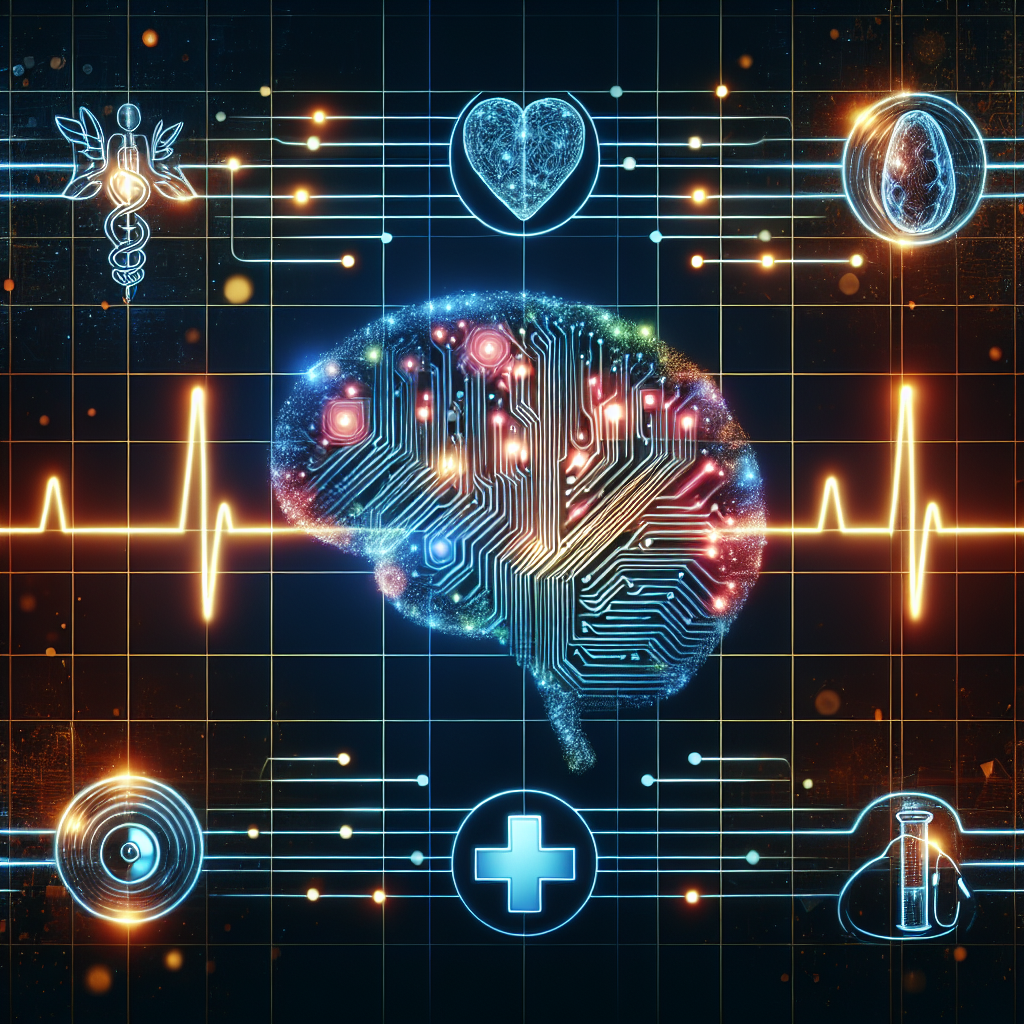The Role of AI Integration in Healthcare Decision Making
In recent years, the healthcare industry has seen a significant increase in the integration of artificial intelligence (AI) technology into various aspects of decision making. From diagnosing diseases to predicting patient outcomes, AI has the potential to revolutionize the way healthcare professionals make decisions and improve patient outcomes. In this article, we will explore the role of AI integration in healthcare decision making and its impact on the industry.
What is AI Integration in Healthcare Decision Making?
AI integration in healthcare decision making refers to the use of artificial intelligence technology to assist healthcare professionals in making informed decisions regarding patient care. This technology can analyze vast amounts of data, identify patterns and trends, and provide insights that can help healthcare providers make more accurate diagnoses, develop personalized treatment plans, and predict patient outcomes.
AI integration in healthcare decision making can take many forms, including machine learning algorithms, natural language processing, and predictive analytics. These technologies enable healthcare professionals to leverage vast amounts of data from electronic health records, medical imaging, genetic testing, and other sources to make more informed decisions and improve patient outcomes.
How Does AI Integration Impact Healthcare Decision Making?
The integration of AI technology in healthcare decision making has the potential to revolutionize the industry in several ways:
1. Improved Diagnostics: AI algorithms can analyze medical imaging, lab results, and patient history to assist healthcare providers in making more accurate diagnoses. This can lead to earlier detection of diseases, more personalized treatment plans, and better patient outcomes.
2. Personalized Treatment Plans: AI technology can analyze patient data to develop personalized treatment plans based on individual characteristics, genetics, and response to previous treatments. This can improve the efficacy of treatments and reduce the risk of adverse reactions.
3. Predictive Analytics: AI algorithms can analyze patient data to predict the likelihood of future health events, such as hospital readmissions, complications, or disease progression. This can help healthcare providers intervene early and prevent adverse outcomes.
4. Operational Efficiency: AI technology can automate routine tasks, such as scheduling appointments, processing insurance claims, and managing medical records. This can free up healthcare professionals to focus on patient care and improve overall operational efficiency.
5. Cost Savings: AI integration in healthcare decision making can lead to cost savings by reducing the need for unnecessary tests and procedures, preventing hospital readmissions, and improving the efficiency of healthcare delivery.
FAQs
Q: How is AI technology integrated into healthcare decision making?
A: AI technology is integrated into healthcare decision making through machine learning algorithms, natural language processing, and predictive analytics. These technologies enable healthcare professionals to analyze vast amounts of data and make more informed decisions regarding patient care.
Q: What are some examples of AI integration in healthcare decision making?
A: Some examples of AI integration in healthcare decision making include diagnosing diseases from medical imaging, developing personalized treatment plans based on patient data, predicting patient outcomes, and automating routine tasks such as scheduling appointments and processing insurance claims.
Q: How does AI integration improve patient outcomes?
A: AI integration in healthcare decision making can improve patient outcomes by enabling healthcare providers to make more accurate diagnoses, develop personalized treatment plans, predict patient outcomes, and intervene early to prevent adverse events.
Q: What are the challenges of AI integration in healthcare decision making?
A: Some challenges of AI integration in healthcare decision making include data privacy and security concerns, regulatory compliance, ethical considerations, and the need for healthcare professionals to be trained in AI technology.
Q: What is the future of AI integration in healthcare decision making?
A: The future of AI integration in healthcare decision making is promising, with continued advancements in AI technology, increased adoption by healthcare providers, and improved patient outcomes. AI has the potential to revolutionize the way healthcare decisions are made and improve the overall quality of care provided to patients.
In conclusion, AI integration in healthcare decision making has the potential to revolutionize the industry and improve patient outcomes. By leveraging AI technology to analyze vast amounts of data, healthcare professionals can make more informed decisions, develop personalized treatment plans, and predict patient outcomes. As AI technology continues to advance, we can expect to see even greater integration and impact on healthcare decision making in the future.

